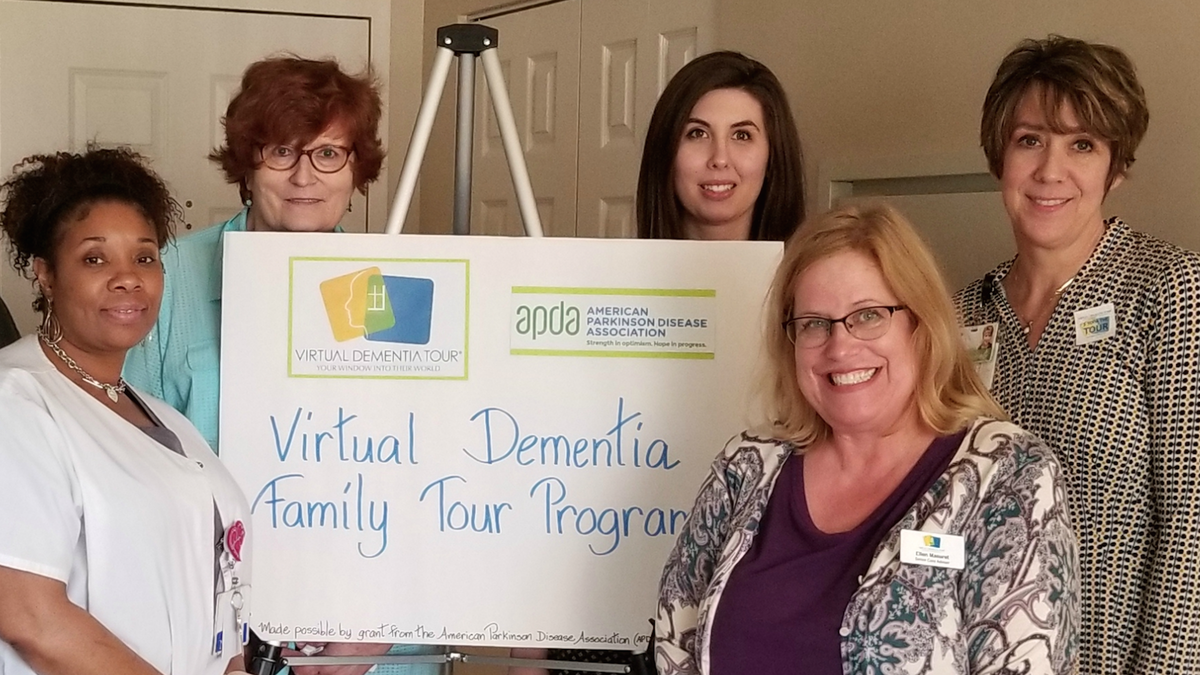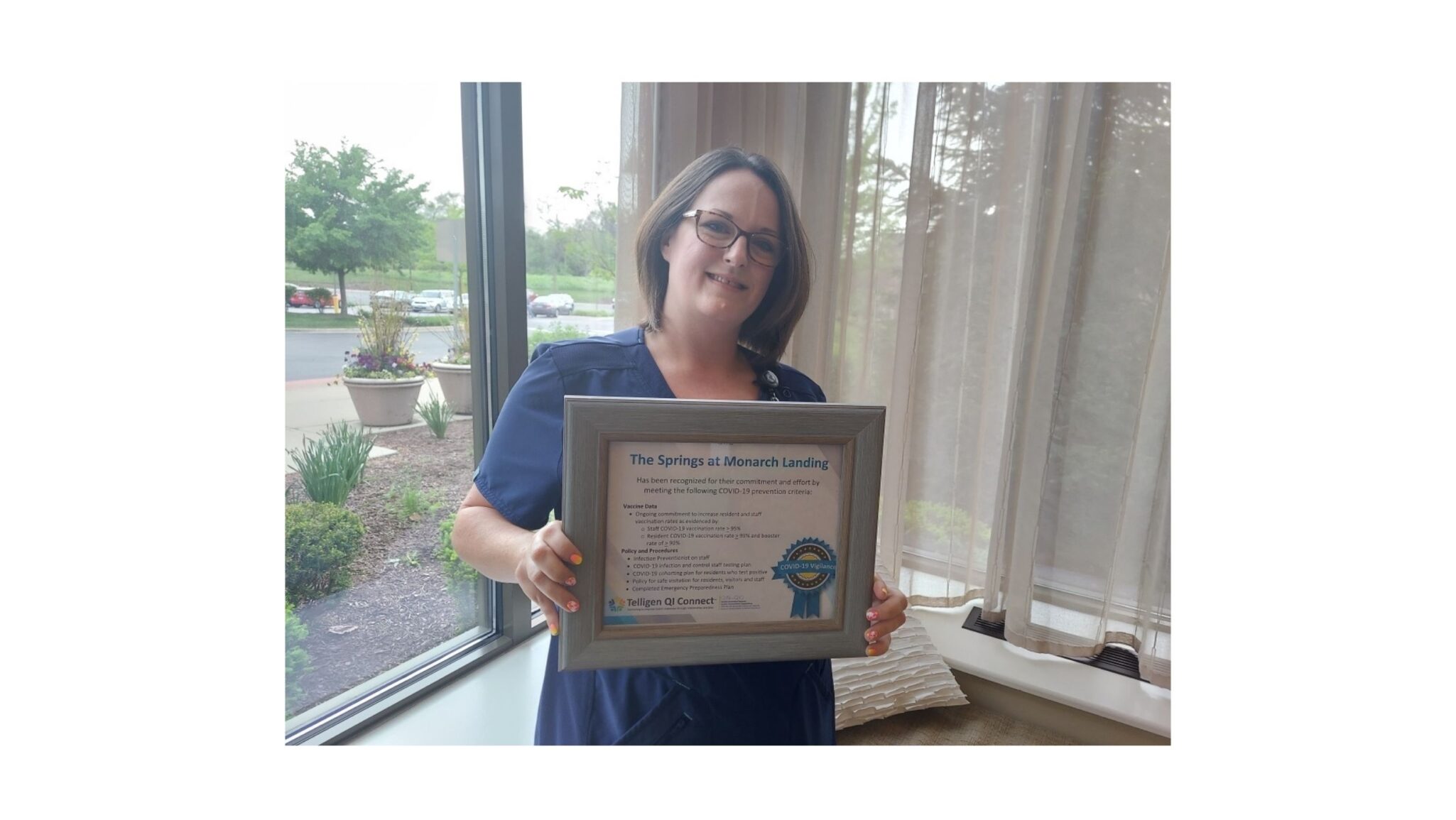Experiencing Dementia
June 11, 2022
Their vision was tunneled and darkened, voices and sounds were distorted, and their dexterity inhibited. Late last month, caregivers and family members of people with Parkinson’s disease and dementia had the humbling opportunity to briefly experience the everyday life of people with advanced cognitive decline. The experience was brought to Monarch Landing senior living community through a program called the Virtual Dementia Tour (VDT) which was created by Second Wind Dreams. A grant from the Parkinson’s Disease Association Midwest Chapter sponsored the program’s presence at Monarch Landing.
What is Dementia?
Dementia is a term used to describe an umbrella of diseases caused by abnormal brain changes that cause a decline in cognitive ability. Common dementias include:
- Alzheimer’s disease (more than half of cases)
- Vascular disease
- Lewy Body disease
- Hunington’s disease
- Frontotemporal dementia
Dementias are caused by brain cells being unable to communicate with each other for a variety of reasons. Many of these conditions are progressive, and the symptoms of cognitive decline vary significantly from person to person.
What is it Like to Have Dementia?
While each person’s experience with dementia varies, there are some common symptoms and troubles that arise on a day to day basis.
Memory Loss
While everyone forgets their dinner reservation sometimes, continual issues with missed appointments are common with early dementia. Later stages of dementia will often include losing your way home from the grocery store, or forgetting when you need the restroom.
Changes in Mood/Personality Changes
Most people don’t like Monday’s, but a person with dementia will often have wildly varying moods, from excitement to anguish.
Impaired Judgement
Though your loved one might have been diagnosed with dementia, they most likely won’t believe it. Even a neurologist suffering from dementia symptoms was “certain that there was nothing wrong with my brain.” This can make treatment difficult, but experts can help.
Confusion
The most widely known symptom of dementia is getting lost, but that confusion can also affect tasks like reading comprehension, speech and language, and difficulty planning or organizing.
The Virtual Dementia Tour
Over the course of two days, almost 60 people participated in the VDT, donning special eyeglasses, gloves, shoes, and headphones, and guided by a certified trainer. They were given eight minutes to complete five tasks in a specially designated area, without the ability to ask any questions.
“We were proud to be able to offer this program, which facilitates the experience of walking in the shoes of someone with Parkinson’s disease and dementia. It enables caregivers and family members, who are often one and the same, to experience for themselves, the physical, mental, and emotional challenges that individuals with Parkinson’s disease and dementia face. They can then use the experience to provide better, person-centered care,” said Sara Friel, director of resident experience at Monarch Landing. “Our staff in memory support at The Springs Health and Rehabilitation Center at Monarch Landing are highly trained. But there’s always more to be learned. This provided a very different and humbling perspective that we previously hadn’t had, of living with Parkinson’s disease and dementia.”
The participants had the opportunity after their VDT experience, to share their thoughts and impressions. They reported confusion, distraction, and frustration. “Without exception, people said that despite their well-intended and certainly kind efforts guiding their care for people with Parkinson’s disease and dementia, they learned a lot that they will, going forward, do differently,” said Friel. “This included different ways of approaching and engaging with their loved ones. This will increase understanding and empathy.”
Monarch Landing’s Memory Care Program
Monarch Landing utilizes the Heartfelt Connections program that’s filled with activities and care to help residents find purpose, dignity, and joy in each day. Our memory care program is personalized to each resident, ensuring their personal story is celebrated and cognitive therapies are tailored to their abilities.
Contact us to learn more about our memory care program in Naperville, Illinois.



